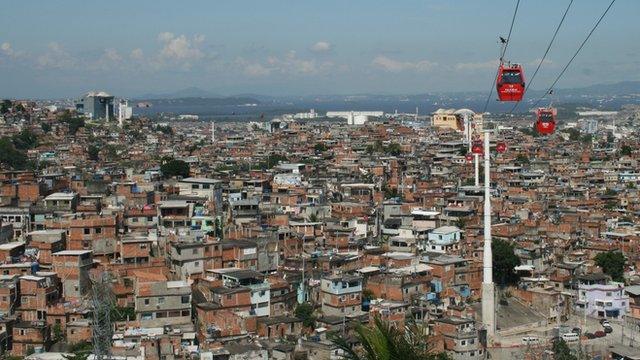Rio favela residents speak of shooting violence fears
- Published
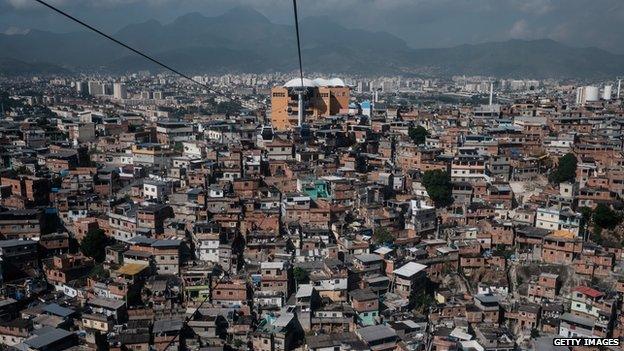
An estimated 70,000 people live in the Complexo do Alemao in Rio de Janeiro
The poor neighbourhood of Complexo do Alemao in the north of Brazilian city of Rio de Janeiro has long been a byword for violence.
Last month, it hit the headlines again when six people were killed in the space of just two days.
Among them was a 10-year-old boy shot dead by police who allegedly mistook his mobile phone for a gun.
The spike in violence comes less than five years after police special forces moved into the favela to retake it from the drug gangs which had been running it for years.
The narrow and winding streets of Complexo do Alemao, which house an estimated 70,000 people, were thought to be inaccessible to security forces.
So when aerial TV footage showed scores of drug dealers fleeing the favela on foot and motorcycles it was seen as a major turning point in Rio's struggle against organised crime.
The security forces established a permanent presence in the neighbourhood as part of their policy to "pacify" Rio's favelas, but over the past months shootouts between drug gangs and the police have again become commonplace.
Beth McLoughlin spoke to four residents about what it is like to live in Complexo do Alemao.

Carlos Monteiro, 25, small business owner
"I love this place, but I have often thought about moving away.
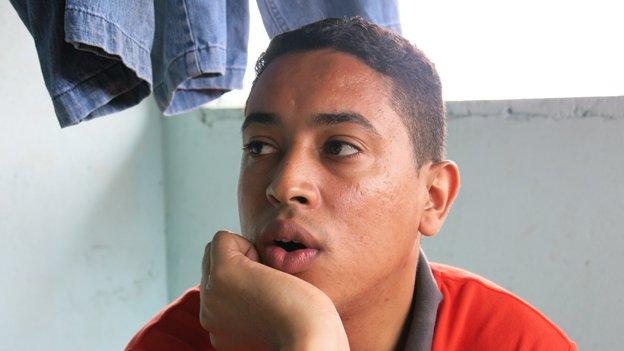
"I used to work as a motorbike taxi driver, but I had to give it up because it was too dangerous when there were gunfights. I was responsible not just for me but for my passenger as well.
"You hear a lot of gossip as a motorbike taxi driver. A woman got me to take her to a house because her husband was there with another woman.
"You get to know everyone.
"I have lost a lot of friends to the drug gangs. It's difficult when people you grow up with die.
"I chose a different path. My brother died after he got shot in a police operation. It makes you stronger in one way, but in another way, you are crying inside.
"My mother gets ill because of the shootouts, but I'm used to it. I've started my own business now, selling food inside the community."

Jessica Solto, 22, community worker
"When I was growing up here, we used to play in the street freely.
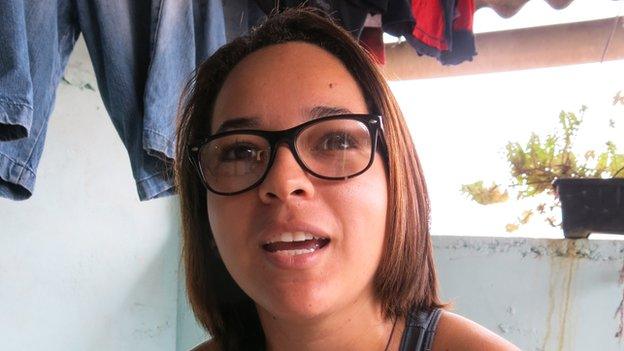
"It was the opposite to what people think a favela is like. There weren't so many guns around in those days.
"At Barraco 55 [community centre], we have music practices and there is a hostel so foreigners can bring their skills to the community.
"It's a way of showing the good things about the community to people.
"Before the army came, I believed it could make things better. A lot of things were promised.
"Now, we have a health centre but most of the time there are no doctors, because they are too afraid [to come to the favela].
"When teachers don't come to the schools, classes get cancelled, and those children end up on the streets where there is more chance they will work for drug gangs.
"Last year, I was coming back from a class, and I had to hide behind a car because of a shootout. It's a horrible situation.
"But residents get used to this routine, they just carry on with their daily lives."

Helcimar Lopes, 41, events producer
"In the favela we like to celebrate, but the police banned our baile funk [dance] parties, I think they don't like to see people in favelas having fun.
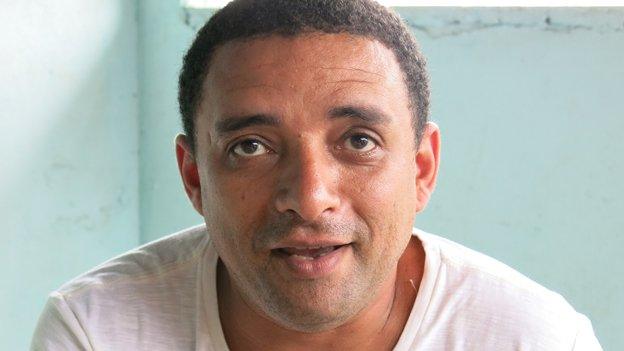
"Now, we have to ask them if we want to hold an event. Sometimes they say yes, sometimes they say no.
"In 2007, no one would set foot in Complexo do Alemao. I set up an IT company to bring internet to people, but we couldn't even get the communications companies to come in.
"Post still doesn't get delivered to a lot of houses. You have to pick it up at the residents' association, or give the address of a relative.
"Postmen are afraid to enter because of the gunfights.
"I've never hidden from people where I live. I like it there, it's close to everything."

Andre Valle, 44, tourist guide and community worker
"Complexo do Alemao is like a small city, everyone knows each other.
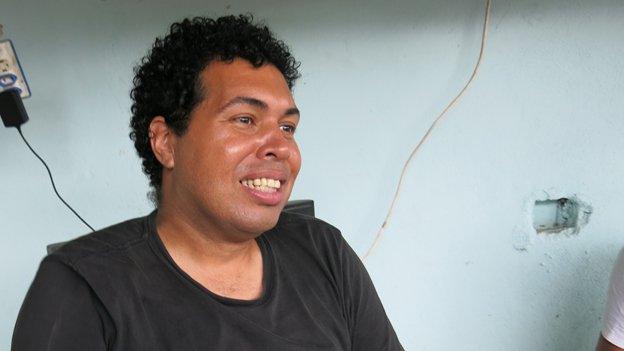
"I moved here when I was a child, I came from a community where dead bodies were dumped just outside my front door by drug gangs.
"Alemao was a lot calmer in those days.
"They filmed some scenes of a soap opera here in 2012. Tourists started to come. It was bizarre, they wanted to see where drugs were sold.
" It was peaceful at first [when the security forces moved in], but then the police started to get nervous and police operations started happening here at any time of day or night.
"Now it's the worst it's ever been."
- Published6 March 2015
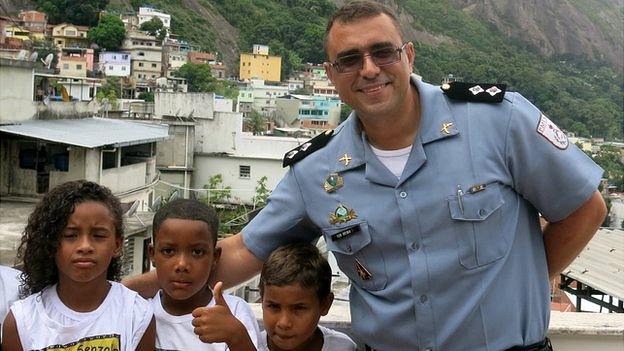
- Published8 February 2013
